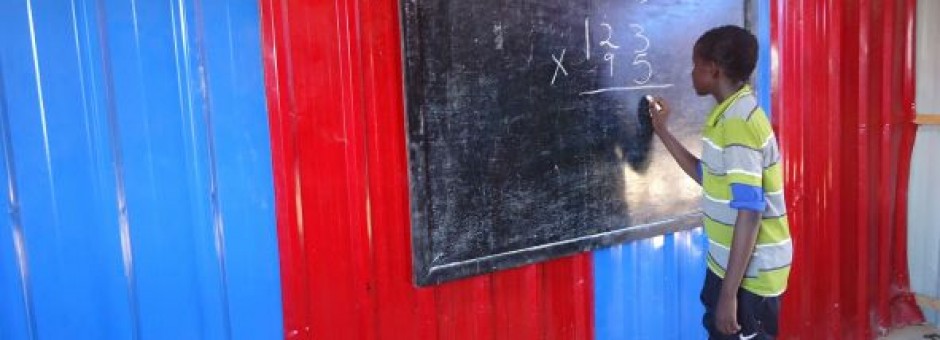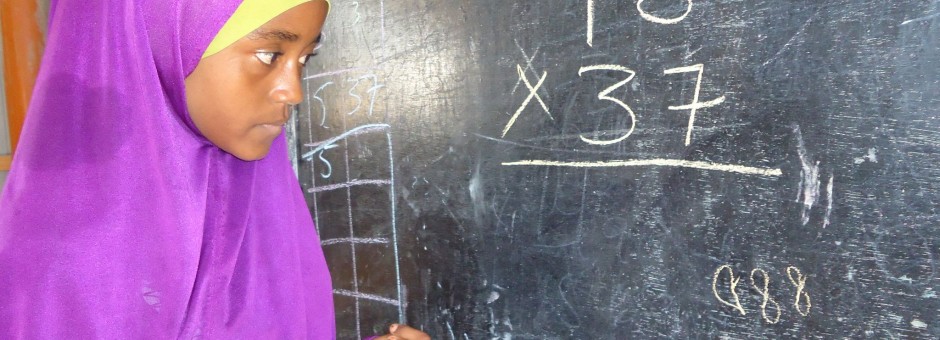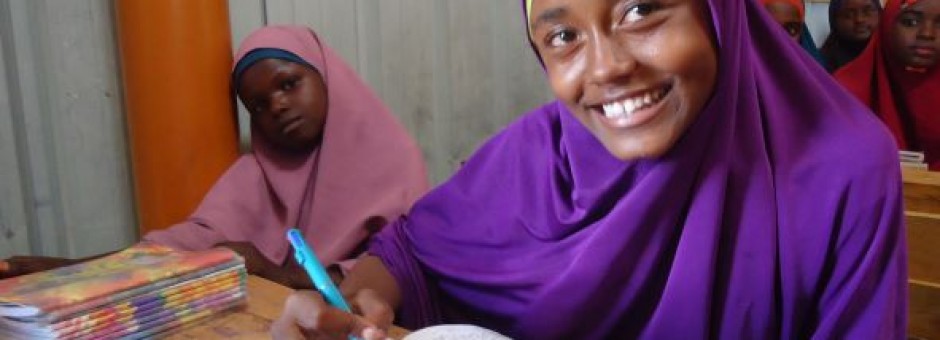



According to the Somali government, upwards of 50 percent of primary-school-age children are out of school in Somalia, with girls, the extremely poor, nomadic pastoralists, IDPs, ethnic minority children, and rural children being disproportionately affected. Furthermore, Somalia’s overall gross enrolment rate (GER) in 2015-16 was a mere 32 percent (35.2 percent for boys; 28.9 percent for girls). In conflict-affected areas, enrolment rates are even lower (8 percent for girls). The Somali Government estimates that the primary GER for nomadic people is just 3.1 percent, and amongst IDPs, it is 16.6 percent. The highest number of children missing out on education due to drought, potential famine, and economic pressure happens to come from regions in the country that are most affected by conflict.
Project Overview:
The joint EAC/CARE USA Waxbar Carurtaada II project is a three-year initiative that will be implemented across 17 districts within the five Somalia regional states of Galmudug, Hirshabelle, Jubaland, South West, and Puntland. The primary goal of the project is to ensure that 57,600 out-of-school children (OOSC) affected by instability, displacement, social exclusion, and poverty in Somalia have access to and the opportunity to complete a quality primary education. To address the primary education access barriers prevalent in Somalia, the Waxbar Carurtaada II project aims to strengthen local governance structures and community support around school safety. Flexi-classes, remedial support, and accelerated basic education (ABE) will also provide viable alternatives for learners unable to access education or attend regularly due to seasonal migration, domestic responsibilities, and the need to partake in income-generating activities. Teachers will receive training, school supplies, and salary support to assist and incentivize their pedagogical practice in the classroom. We will rehabilitate schools and construct temporary schools to provide child-friendly learning spaces that will accommodate the projected increase in enrolment rates amongst marginalized groups, including girls and the extremely poor.
|
Barriers: Poverty Nomadic/Pastoralist lifestyle Challenging geographies Overage status Lack of school infrastructure Gender discrimination Lack of trained teachers Internal displacement Conflict (attacks against schools) & insecurity |
Solutions: Scholarships for girls with disabilities Flexible-learning programmes Provision of teaching and learning materials Accelerated learning program Rehabilitation of schools Building gender-sensitive WASH facilities Training for teachers and education officials Construction of temporary schools and/or learning spaces Community engagement |

Education Above All (EAA) is a foundation founded by Her Highness Sheikha Moza bint Nasser. Its aim is to contribute to human, social and economic development through the provision of quality education. With a particular focus on those affected by poverty, conflict and disaster, it champions the needs of children, youth and women to empower them to become active members of their communi...
LC2022EAA01-000021